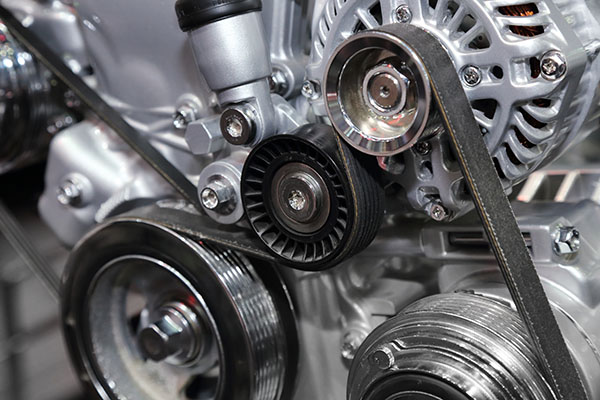
Ever heard a squeaky noise coming from under the hood of your car and wondered what on earth could be the cause? Well, you might just be dealing with a case of the tensioner blues. The engine belt tensioner, a critical but often overlooked hero of the automotive world, ensures your car runs smoothly, powerfully, and efficiently.
What Does the Belt Tensioner Do?
The engine belt tensioner, in its essence, is a device that keeps the engine belt tight and in place. This tension is vital because the engine belt drives multiple peripheral devices in your vehicle, such as the alternator, water pump, and power steering pump.
Without the right tension, belts can slip, squeal, or even break, leading to decreased performance, increased wear, and potential breakdowns. It's the guardian of your engine's harmony, ensuring everything runs as it should.
Signs of a Worn Tensioner
Unusual Noises
This is often the first sign that something is amiss. Listen for:
- Chirping: A high-pitched, repetitive sound that may occur at all engine speeds.
- Squealing: A loud, sharp noise, especially noticeable during startup or when using power-intensive features like air conditioning.
Visible Wear on the Belt
Regular inspections can reveal physical signs that the tensioner is failing to keep the belt properly tensioned. Look for:
- Fraying Edges: Indicates the belt has been rubbing against something it shouldn’t.
- Glazing: A shiny or glossy appearance on the belt's surface, suggesting it's slipping.
- Cracks: Small tears or cracks in the belt material are a sign of aging and wear.
Belt Misalignment
If the belt appears to be off-center on the pulleys or seems to wobble as it moves, the tensioner may not be holding it in the correct position.
Excessive Belt Slack or Tightness
The tensioner should maintain optimal tension. If the belt feels too loose or too tight, the tensioner may not be functioning correctly.
Fluctuating Power or Accessory Malfunctions
If the alternator, power steering, air conditioning, or other belt-driven accessories seem to work intermittently or lack power, it could be due to improper belt tension.
Tensioner Pulley Wear
The tensioner has a pulley attached to it; if this pulley becomes worn or wobbly, it's a sign that the tensioner assembly may need replacement.
Visual Inspection of the Tensioner Itself
Look for signs of hydraulic fluid leakage (for hydraulic tensioners), rust, or corrosion on the tensioner body. These indicate that it's time for a closer inspection or replacement.
What Is The Key to Longevity
Preventive maintenance is your best defense against tensioner troubles. Inspecting the tensioner and belt for wear and tear can save you a lot of headaches down the road. This doesn't mean you need to be a mechanic; just keeping an eye (and ear) out for the signs of wear we discussed can go a long way. Additionally, during your routine vehicle service, ensure the tensioner's tension is checked and that the belt is inspected for any damage or unusual wear patterns.
Replacement Rundown
Sometimes, despite your best efforts, a tensioner or belt will need to be replaced. This isn't a sign of failure but a natural part of a car's life cycle. Replacing a worn tensioner or belt before it fails can prevent other, more expensive problems down the line. This task can vary in complexity depending on your vehicle's design, but it generally involves loosening the tensioner, removing the old belt, replacing the tensioner if necessary, and installing a new belt with the correct tension.
When to Call in the Pros
While DIY maintenance can be rewarding and save money, there are times when it's best to call in a professional. If you're experiencing persistent issues, or unusual noises, or if the belt or tensioner requires replacement, a skilled mechanic can ensure the job is done correctly, saving you time and potential future repairs.
While we are talking about skilled mechanics, the team at Oceanworks Berkeley is exactly that! Some of the best in the game - book an appointment and experience the difference we are known for!